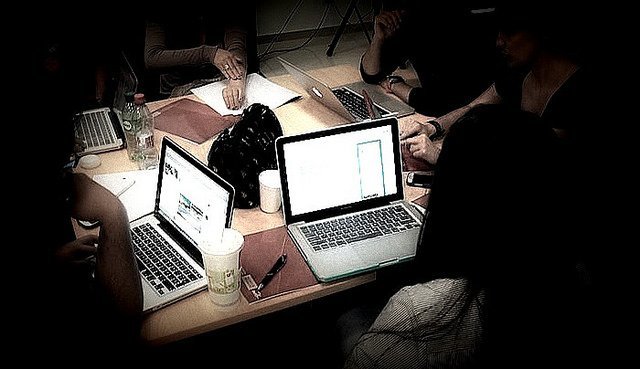Today, 3 May, is World Press Freedom Day, a day set by the United Nations to highlight the important role of the press and journalists worldwide.
“Everyone has the right to freedom of opinion and expression; this right includes freedom to hold opinions without interference and to seek, receive and impart information and ideas through any media and regardless of frontiers.” Article 19. Universal Declaration of Human Rights”
With the wealth of natural resources available, the huge financial interests at play, the influential role of extractive companies and the dominance of natural resource revenue for some developing countries’ economies, writing about the extractive industries is an important area for journalists. Without freedom of press, the work of PWYP members to monitor and ensure the good governance of the extractive sector is even more difficult.
“Journalists bring the message of the need for transparency and accountability to the public. The free press in the Philippines has contributed to important public debates in the extractives in the country.” Marco Zaplan, Bantay Kita
Working as a journalist can be dangerous, in particular at national level. Already concerned about the crackdown on civic space, PWYP is also worried the worsening conditions for journalists in recent years, with an increasing number of deaths, arrests, government control of the media and other restrictions on press freedom in numerous countries. In fact the Freedom House’s research shows that freedom of press globally has reached its lowest point in 12 years in 2015. The Committee to Protect Journalists has found that 1189 journalists have been killed since 1992 and that there are currently 199 jailed journalists worldwide. Journalists working on stories about corruption and the extractive sector can in particular end up paying a high price for their investigative work.
A free press is vital for a country’s good governance and to hold governments and all extractive stakeholders to account. Journalists are the voice of the public and also have an important role in relaying key messages to that public, finding hidden data and transforming complex information into something meaningful to the general public, as the recent Panama Papers and Unaoil scandals have shown. They expose corruption, demonstrate how lack of good governance impacts citizens and can show how revenues raised from natural resources extraction are not being used in the right way that benefit of the public.
“[local communities] are entitled to know that […] donations come from the income generated by managing their country’s natural resources and that they could get a better deal from the government if they themselves got involved” Pascaline Tshimbuka, journalist working with the PWYP coalition in DRC
But lack of capacity and knowledge can undermine journalists’ abilities to report on the extractive sector. To counter this, some PWYP coalitions have been working on improving the capacities of journalists, in particular at national and local levels. In the Democratic Republic of Congo, the PWYP coalition has organised a series of training for national and local radio journalists to increase their capacities in relaying information about extractive deals and what the EITI means for the communities impacted by extractive activities. In Indonesia, PWYP Indonesia and the Natural Resource Governance Institute (NRGI) have worked with journalists on how to keep the public informed about key decision making processes. The PWYP coalition in Cameroon joined forces with the Union of Cameroon Journalists (UJC) to conduct a study entitled “Knowledge, perceptions and expectations of communities affected by extractive projects on the EITI”. Conducted in late 2012, the study concluded that less than 9% of the population were aware of the EITI. The next step of the project aims at increasing the Involvement of traditional authorities and local communities to boost the EITI process at the local level by working with local media. In Tunisia, the PWYP coalition has been working closely with a media group that is being trained by NRGI.
Moreover, with the increase of transparency in the extractive sector, partly due to successful engagements by civil society, we are now seeing a growing wealth of data available to media. Data is being produced through the EITI and made available by companies through mandatory disclosures; including the EU Accounting and Transparency Directives, the Dodd Frank Act and other similar rules in countries such as Norway and Canada. More and more civil society organisations are taking this data and making it digestible via online platforms, as NRGI and OpenOil have done. There is a momentum for civil society and media to work together to harness this data.
“This relationship needs to deepen. Journalists also need to further their capacity and understanding in reporting issues about extractives.” Marco Zaplan, Bantay Kita
Without an independent and capable voice to relay critical information to the public, combined with the general crackdown on civil society in many countries, communities affected by extractive activities will continue to be treated unfairly. To counter the crackdown on freedom of press and civic space and to be able to make the extractive sector less opaque and more accessible to the public, civil society organisations and journalists need to work together.











